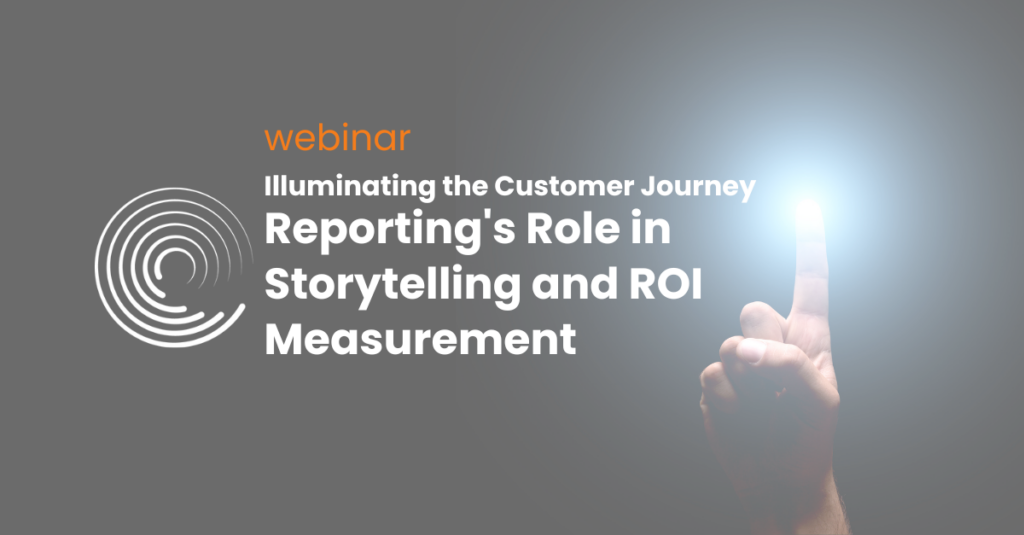In Star Wars, Darth Vader and Obi-Wan Kenobi cross lightsabers aboard the Death Star. Before allowing Vader to take his life, Obi-Wan says, “You can’t win, Darth. If you strike me down, I shall become more powerful than you can possibly imagine.”
Obi-Wan’s cryptic warning is the perfect analogy for the rise and fall of buzzwords in B2B marketing. Like Obi-Wan, buzzwords can die yet become more powerful than we can possibly imagine. This just happened to “predictive analytics,” a term which is no longer a standalone category in Chief Martec’s Martech Landscape. Let’s examine how buzzwords die and why it matters to B2B marketers.
The Cloud: A Prequel
About five years ago, B2B tech marketers couldn’t string together two sentences without using the word “cloud.” Cloud-based, cloud service, cloud infrastructure, cloud storage, cloud collaboration, cloud-sourced, cloud security, etc. Cloud was the adjective that made every new product sound innovative. Then it wasn’t.
Today, you don’t hear B2B marketers bragging about cloud anything. The cloud has become so ubiquitous and expected amongst buyers that it would seem weird if a company bragged about its use of cloud technology (or SaaS, for that matter). It would be as if Samsung bragged about selling “touchscreen” phones.
A marketing buzzword rises when its presence in a B2B product is unexpected, enticing, and sexy. The buzzword plateaus when every marketer and her cousin is dropping that word in press releases, website content, and social media posts. The buzzword is struck down when it becomes so entrenched in our technology ecosystem that we stop noticing it.
From What to How
When a buzzword becomes so powerful that we take it for granted, we strike it down. It becomes one with “the Force”. Maybe that is what Obi-Wan meant too – that in death, oneness with the universe would grant him powers he could never attain in human form.
But I digress. When cloud technology was buzzy, cloud answered the question, “What?” Marketers sold the benefits of the cloud. Overused adjectives like scalable, robust, extensible, etc. spawned from the cloud craze.
So, once a technology stops being attractive as the answer to “What?” it becomes the answer to “How?” Cloud is now a mere tool, a way to deliver software or a place to process mass amounts of data. Terms like artificial intelligence (AI), machine learning, and personalization have usurped it. And predictive analytics now joins Obi-Wan, Yoda, Darth Vader, and the other dead Jedi.
Why did predictive analytics get buzzy? In account-based marketing (ABM), predictive analytics establishes the quality of leads before marketers spend money pursuing them. It turns raw data into insights about potential accounts.
Now, predictive analytics could also refer to systems that predict the success of social posts, email campaigns, and other events where marketers wish they could foretell the outcome. In fields as varied as healthcare and industrial automation, predictive analytics has meanings too.
Like cloud, predictive analytics is broadening into so many products and services that the term has lost specificity. If a platform uses data to tell you about something that hasn’t happened yet, it’s predictive.
Next Down…
What buzzword will get subsumed next? I already hinted that AI, machine learning, and personalization are in buzzword plateaus. ABM will get subsumed too. It’s the de facto marketing strategy, and soon enough, no one will sell extra product by associating it with ABM.
The best way to spot the next dead buzzword is to notice what fellow marketers overuse in their content. “Customer experience” is definitely a goner and has lasted longer than expected. The word “relevance” is heading towards irrelevance. “Easy-to-use” and “intuitive” have lasted a while in B2B tech (but are dying in consumer tech) because those qualities were rare but aren’t any longer.
Why it Matters
Why, you might ask, is it worth your effort to identify dying buzzwords? Because they’re a great litmus test for the sophistication of your marketing stack and the freshness of your messaging.
When product descriptions for tech you buy (or sell) brag using dead buzzwords, there’s a decent chance the product or brand hasn’t evolved. The marketers can’t update the language because there’s nothing new to say. The product and the company’s understanding of the market may be stagnating.
In contrast, when a product uses a ton of jargon you’ve never seen before, the terms could be rising buzzwords. Or, they could be terms that die young. It’s riskier technology.
Buzzwords help locate our businesses, cultures, and tools in a time and place. I don’t advocate for overusing buzzwords, but I do suggest you notice them. They tell stories* we’d otherwise neglect.
*The buzzword “storytelling,” by the way, is dying because most of the people who use the word don’t tell actual stories.




